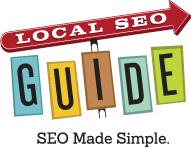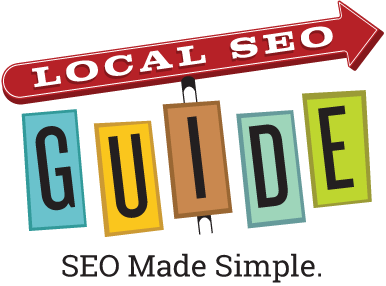Tweet Miriam Ellis has a great piece over on Search Engine Guide about how the new Google Place “integrated” Listings (I called them A+ Listings) could cause problems for businesses with multi-city service areas:
One potential negative…I have clients who are ranking excellently in both the old 7 Pack and organic results for their main service term and the city in which they are located. Maps/Places has been built around the premise that each business is allowed to rank only for the city in which it is physically located. That’s Google’s take on what a local business is, but in the real world, there are countless businesses that offer go-to-client services in a wide area. For example, I have a client who is a mobile notary public. Let’s say she is located in San Francisco, but she also renders services in Berkeley, Oakland and Richmond.
Historically, the way we have worked with Google’s definition is to create a Google Place Page for a client like this notary in her main city – let’s say that’s San Francisco. Then, harnessing the power of her website, we have created strong content pages for each of the other cities in which she serves. The result of this has been excellent organic rankings for all major points in her service area, backing up her high local rank for her city of location.
But what happens now? Will the new integrated local SERPs push my client’s high ranking service area web pages off page 1?
It was already extremely challenging for a business to rank in GOOG maps outside of its location city. Now it looks as if that’s going to be the case for Web results as well.


10 Response Comments
Wait…isn’t it in Google’s best interest to give searchers what we want? For example, I live in Pleasanton, and if the best piano tuner is in Oakland (which happens to be the case) and they will come to my house, then I want those results from Google.
Besides “go to” services, what about a great dentist who is located in San Ramon on the border of Danville and close to Dublin? The office will be closer to many Dublin and Danville residents than to people living on the opposite side of San Ramon.
I predict that Google will have to change this policy to reflect real-world needs and wants. Great article and food for thought!
I can feel your difficulties as since yesterday, we have seen a major change in maps listings almost dominating some of the specific local search pages. and pushing organic results way down the line.
We have spent much resources getting our organic results to the top and are now thinking of the new maps domination impacts.
btw, thanks for your blog postings and information. love the contribution.
@Kim,
In the case of the San Ramon dentist on the border of Danville, there is still a chance they will be able to rank for Danville queries, assuming that there aren’t more than 7 dentists in Danville. You would think that GOOG would have solved this problem with some kind of linking algo, but it may just be the case that businesses with physical locations in a city have an overwhelming number of citations for that city from authoritative sites (yellow pages, etc.) that there is no way a biz outside the city can rank.
@Orzi,
Thanks for stopping by. Good luck with the rankings!
Andrew,
yeah the new local SERP’s are shaking things up. do you think the rankings still play on just the Google Places algorithm or do you think it’s also using the organic algorithm too that determines what is displayed in the new local SERP’s…?
It seems to me it’s still the Google Places algorithm, but they seem to pulling data from the website to display in the SERPs listing.
Do think that if you don’t have a strong local authority with a your website and your google places listing then you will have no chance in hell ranking on the first page for your local keywords…?
Andrew –
Thank you so much for highlighting this as it’s the one area that has me concerned. Since writing the above piece, I had the time to specifically look at this mobile notary client’s results. For the most part, she is still riding high with those city-specific pages. In fact…I am even seeing her getting Blend/O-Pack results for cities she isn’t located in. This could be because she has worked harder at everything than most of her competitors’, but the results could change. For now, anyway, I am not seeing this change putting her at a disadvantage, but it’s something to watch.
Do you have any similar clients with these types of pages? What are you (or any of the commenters here) seeing? Would love to know.
Miriam
Places listings let you select the cities or targeted areas for your services. Until now, this hasn’t had much effect on the results, but with all the changes – who know what will happen in the near future.
My clients whose sites or landing pages are heavily optimized for surrounding local cities are still getting good rankings in the SERP – in or above the new Places listings.
I have a video on my site of a client who took a beating in surrounding cities where she previously had a good page 1 positions.
To see the video: Has Gooogle Gone Too Local, go here:
http://www.onlinetrafficdivas.com/search-engine-news/has-google-gone-too-local/
Thanks for your post!
Becky
This is the topic of the day for local SEO. I just checked a certain city, industry search in Google, and the only listing that made it above the 7 Pack is the domain cityindustry.com for which I searched. Then the 7 Pack followed, leaving only 2 spots left at the bottom of the 1st page.
If someone could answer why some searches show some organic listings – above or in-between the 7-Pack?
What is happening there?
In my example, the domain matched the search exactly, but other times, when domains show up above or inter-mixed with the 7-Pack that hasn’t been the case.
Anora,
In these cases GOOG is making an assumption as to the intent of the searcher based on the keyword – is it local or national or both? In the cases where a “national” result appears above the 7-pack my guess is that GOOG has decided that the national results are most relevant.
Thanks Andrew, I’ll look with that perspective when I do my next searches to see if local vs. national might apply. Figuring out the mind of the Great Google is an adventure!